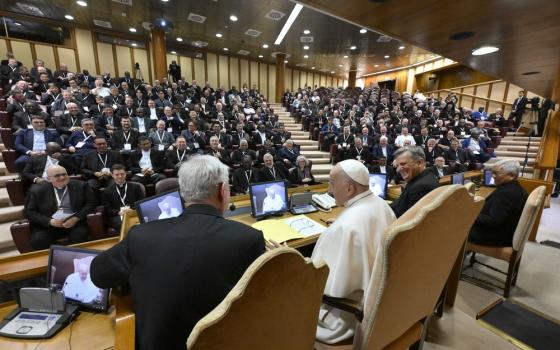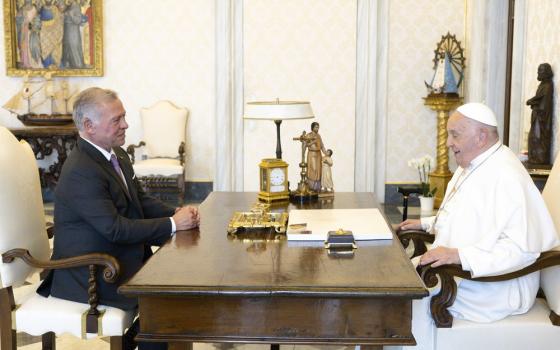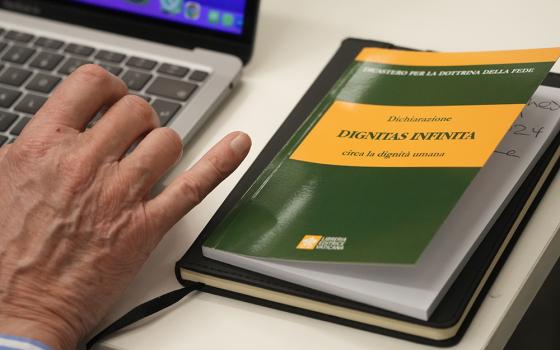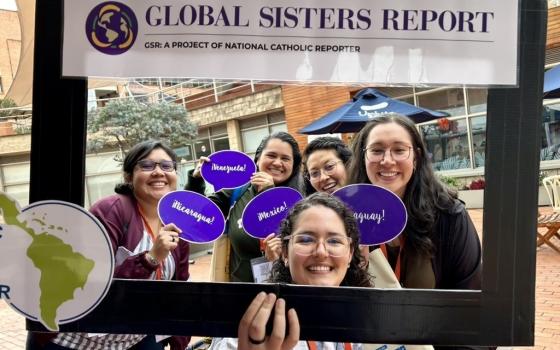Mary Eberstadt's new book, It’s Dangerous to Believe: Religious Freedom and Its Enemies, is a lousy book. Lousy not because I disagree with its conclusions or perspectives but lousy because her focus is relentlessly off, her knowledge of her subject matter is alternately thin or confused or narrowly constricted, and her consequent conclusions are laughable and often offensive outside the neo-conservative circles whose banner she wields. (Eberstadt has worked at Hoover Institution and Ethics & Public Policy Center, bastions of the neo-con intellectual enterprise.)
And, yet, the reception this book has received in conservative circles tells us all we need to know about the religious liberty campaign these days: Archbishop Charles Chaput recommended Eberstadt's book as one of two he suggested Catholics read in advance of the election; a book launch event at the Heritage Foundation; glowing review at National Review; an interview with Dennis Prager. You would think this tome was a fifth Gospel, so it is worth examining it in some detail.
The central irony of Eberstadt's effort is that the title of her book is correct: It is dangerous to believe, at least for the Christian, but not for the reasons she cites. It is a measure of how distorted Eberstadt's lens is that she can write these sentences:
In short, what many Western men and women of faith feel to the marrow these days is fear. Fear that they will lose the good opinion of their neighbors, family and friends -- because traditional Christianity, especially, is said over and over to stand on the wrong side of history; because religious faith of that particular kind is denigrated across popular culture, and disdained as retrograde or worse in many citadels of higher learning.
Oh, my God! The next thing you know, you might be disinvited from the best cocktail parties or snubbed at the club! This catalogue of upper-middle class anxieties -- not getting the right internship, being shunned in professional circles, worrying about appearing "too religious" -- this is not the danger of the Gospel. It is dangerous to believe because we are called to believe that "He has cast down the mighty from their thrones, and has lifted up the lowly; He has filled the hungry with good things, and the rich he has sent away empty," in short, that God's values are not the values of the world, and that the Christian is called to take up his cross and follow Him.
Eberstadt frets that in the Supreme Court case on same-sex marriage, Obergefell v. Hodges, "unlike any other case in Supreme Court history, this one could attract no blue-chip firms and no celebrity lawyers, to argue one side of the case -- i.e., against the claim that there is a constitutional right to same-sex marriage -- for fear of the professional and personal consequences." Imagine having to slum it with non-blue-chip legal counsel! I read that last item on the checklist and wondered if Eberstadt had ever once complained about the quality of legal assistance afforded to America's indigent population.
To be clear: I make no apologies for some of the items on her list of liberals behaving badly towards religious people. Some on the left, especially in academic circles, throw around the charge of "hate speech" with reckless abandon, and their disregard for liberal principles like diversity of opinion would be comic if it were not so obnoxious. I get it. But, Eberstadt's cluelessness about how privileged her concerns are is breathtaking.
This is especially true when she lists her concerns about the ways "traditional Christians" are "persecuted" for espousing their opposition to homosexuality. I found myself repeatedly wanting to ask Eberstadt if her problem is that gays -- having been on the receiving end of persecution in ways that were far worse than what she complains about regarding religious folk, and for a very, very long time -- are now fighting back? She is not a dumb woman so surely she is aware that these same "traditional Christians" tried to keep gays in the closet, tried and still try to ostracize them, backed legislation that would permit discrimination in hiring and in housing, fought to deny funding in the fight against AIDS unless it was accompanied by a big dose of stigmatization, and called Hurricane Katrina God's punishment on New Orleans for hosting a gay pride celebration? Is it a surprise to anyone that they fought back?
Eberstadt blames "two major cultural events" for the "epochal setbacks to men and women of faith, especially Christian faith" in the last ten years: the clergy sex abuse crisis and the terrorist attacks on 9/11. She is right about the "crippling blow" the sex abuse crisis dealt to the moral authority of the church, although quoting an apologist for serial pedophile Fr. Marciel Maciel like Fr. Richard John Neuhaus on that particular subject seems out of tune. But, me thinks she has selective recall when she writes that "in the aftermath of 9/11, a wave of atheist tracks appeared corresponding to and feeding public anxiety about the perceived power of a group that had nothing to do with 9/11 but was tarred with the same brush nonetheless: American Christians." I seem to remember the Rev. Jerry Falwell and the Rev. Pat Robertson blaming gays and lesbians and feminists for 9/11. I seem to remember that the New York archdiocese faced no public protests when it restored St. Peter's Church after 9/11 but all hell broke loose when the Muslims wanted to open a mosque several blocks away.
A few pages on, Eberstadt writes this remarkable, and very revealing, sentence: "For a while there in the 1950s, and again in the 1980s and beyond, traditionalist Christians had momentum on their side." Really. This is a very interesting assertion. Let's set aside the 1950s for the moment and start with the 1980s, which was the decade of the Moral Majority and similar groups, as she acknowledges. I noted above the ways these supposedly "traditional Christians" picked every fight they could with gays, laying the groundwork for much of what angers Eberstadt now. But, there are other questions I would pose to Eberstadt. What, precisely, was "traditional" about the Rev. Jerry Falwell and the Moral Majority? Traditionally, on church-state issues, Baptists supported a strict separationism and Falwell himself was at first reluctant to get involved in politics for this reason. For centuries, educated Christians understood that the Bible was an anthology of books that had to be interpreted in different ways but, spooked by Darwin and liberal theology, a certain group of right-wing Christian thinkers formulated fundamentalism at the start of the 20th century, throwing out centuries of scholarship in favor of the crudest -- and ironically the most malleable -- interpretations of the meaning of the Christian canon. What is "traditional" or even "conservative" about any of this?
The 1950s were a time of Christian significance, but not for the reasons Eberstadt cites. She focuses on religiosity, not the Christian faith. "Classic movies with religious themes like Ben Hur, The Robe, and Quo Vadis, and other popular entertainments predicated on Judeo-Christianity as a shared cultural heritage were once a Hollywood staple," she notes. She actually laments that "the Hays Code is no more," a reference to that vestige of the Legion of Decency, when movie producers haggled with censor Joe Breen over how much cleavage Jane Russell could expose in "The Outlaw" and just how blissful Scarlett O’Hara could appear in her post-coital scene in "Gone with the Wind." Ah, the good old days. And, of course, Hollywood appears here like a lefty art school, not like the investor-heavy industry that it actually is. Interesting, too, what Eberstadt does not address about that decade, the white flight to the suburbs and consequent breaking up of ethno-religious neighborhoods and extended families, the advent of mass consumerism and the advertising industry's maturation, the casual alliance of nationalism, militarism and religion. There was a singular expression of lived Christian faith in the public life of the nation in those years: the civil rights movement, but it apparently does not concern this astute student of the culture.
I shall conclude this review tomorrow.
[Michael Sean Winters is NCR Washington columnist and a visiting fellow at Catholic University's Institute for Policy Research and Catholic Studies.]








